A two-day international symposium on AI’s publics, publicities, and publicizations at Milieux Institute, Tiohtià:ke/Montréal.
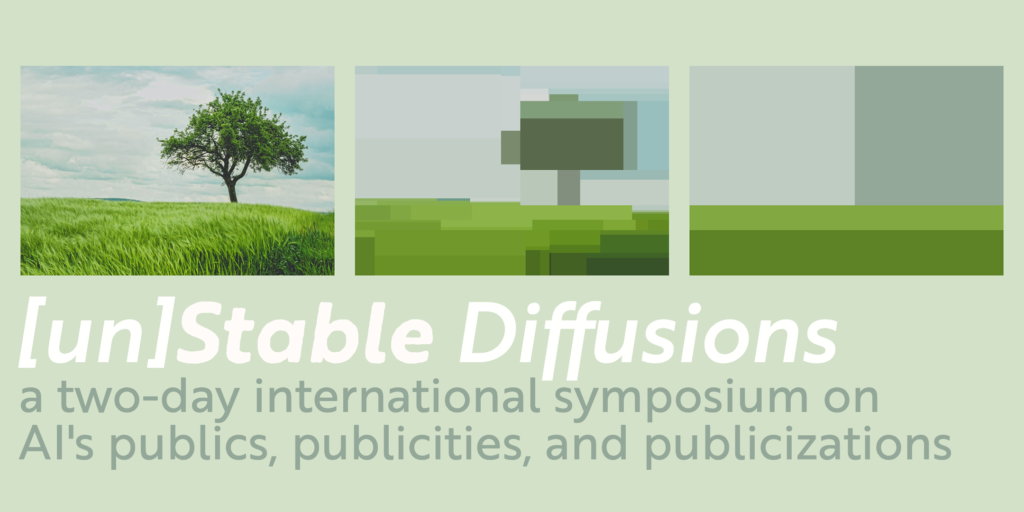
Rens Dimmendaal & Johann Siemens / Better Images of AI / Decision Tree reversed / Licenced by CC-BY 4.0
May 23 to May 24, 9am to 5pm
Online and in person at Milieux Institute
EV Building, 1515 Saint-Catherine St W
Montreal Quebec
About (un)Stable Diffusions
21st-century AI is very much in its formative stage: It is still unsettled, and is continually being both stabilised and contested by diverse sets of actors: from technologists, startup founders and global companies to policy makers, journalists, and civil society. For some, AI is being positioned as a fix to our social problems, which in turn will change how we live, communicate, work and travel. Others raise substantive concerns that these developments might reinforce inequality, exacerbate the opacity of decision-making processes, and ultimately question human autonomy. We are thus living in a time when the infrastructures and institutions of our everyday lives are being (re)built at the hands of techniques which already elude popular and professional understanding; but while the controversies about the specific pathways to be taken are still visible, we can already perceive elements of closure and institutionalization.
Our symposium invites contributions from an international audience to interrogate the shaping of AI. Building on an international collaboration between research teams from Germany, France, the United Kingdom and Canada, we invite presentations that pursue critical engagements with AI’s media representations, policy framings, and scientific debates. Crucially, we also invite epistemic reflections in how we are all Shaping AI, including practice-based research or research-creation.
Local organizers include Meaghan Wester, Sophie Toupin, Jonathan Roberge, Robert Marinov, Fenwick McKelvey, Maurice Jones, and Guillaume Dandurand
Special Issue
(un)Stable Diffusions: General-purpose artificial intelligence’s publicities, publics, and publicizations
Edited by Fenwick McKelvey, Joanna Redden, Jonathan Roberge, and Luke Stark (names in alphabetical order)
To be published in the open access Journal of Digital Social Research. Submission form coming soon.
Location
Our symposium is located on the first floor of the EV Building at the Sir George William Campus of Concordia University, 1515 St. Catherine St. West.
Symposium events will happen in one of two rooms:
- Room Shodan: EV1.615
- Room Glados: EV2.260
How to get here
We are located at the Guy-Concordia metro station and off the Maisonneuve bike path. The link to the EV building is under construction so you will need to take the Concordia University exit, the escalators up to Guy, then enter the EV building entrance south of the metro exit. Please refer to the map below.
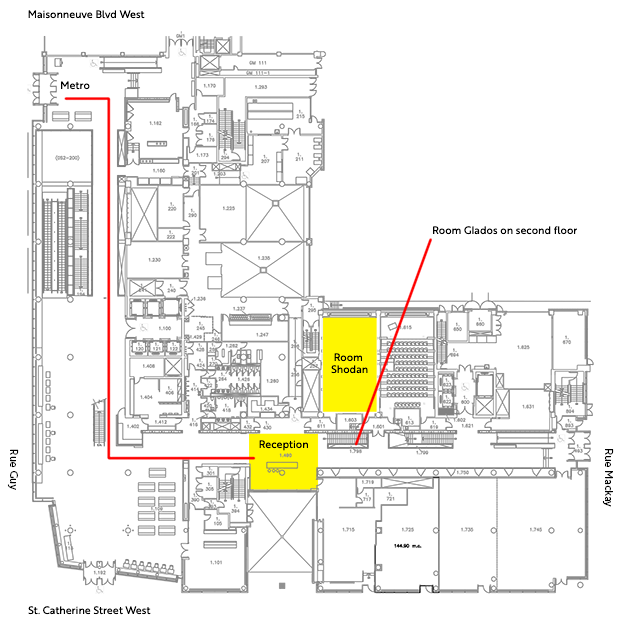
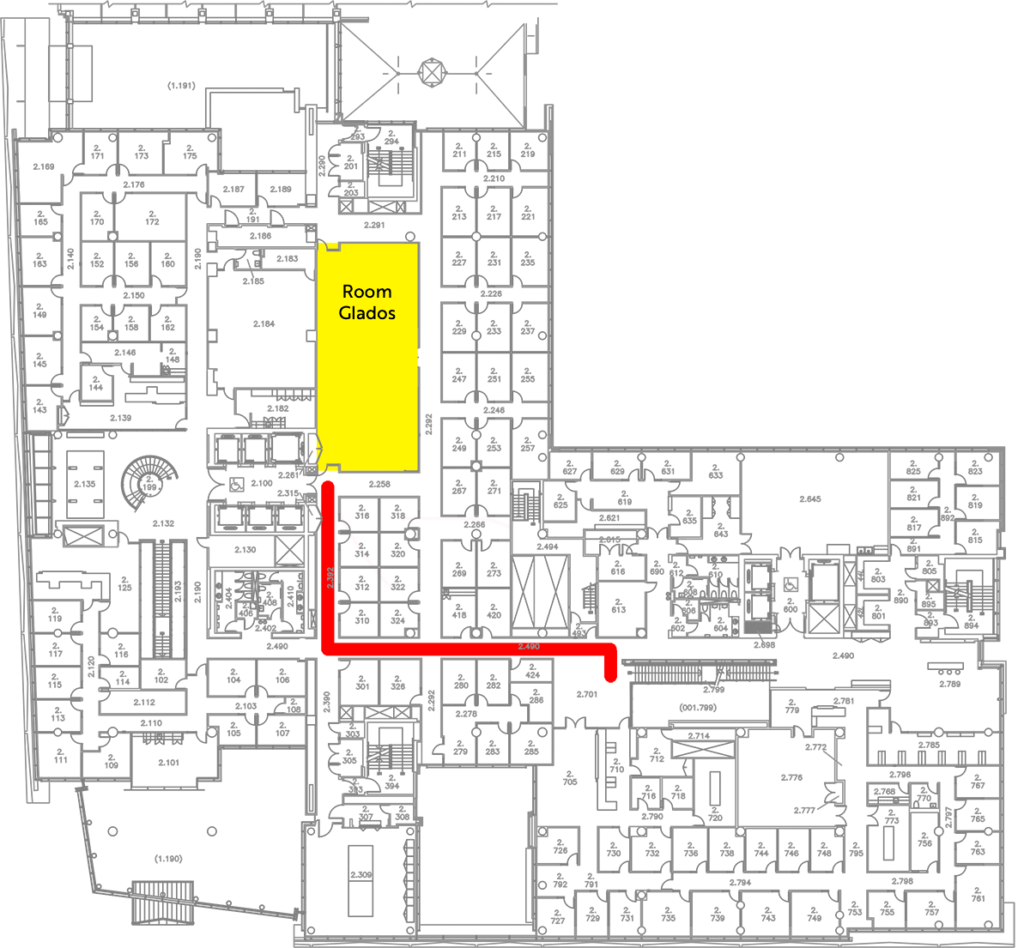
Day 1 – Keynote Panel

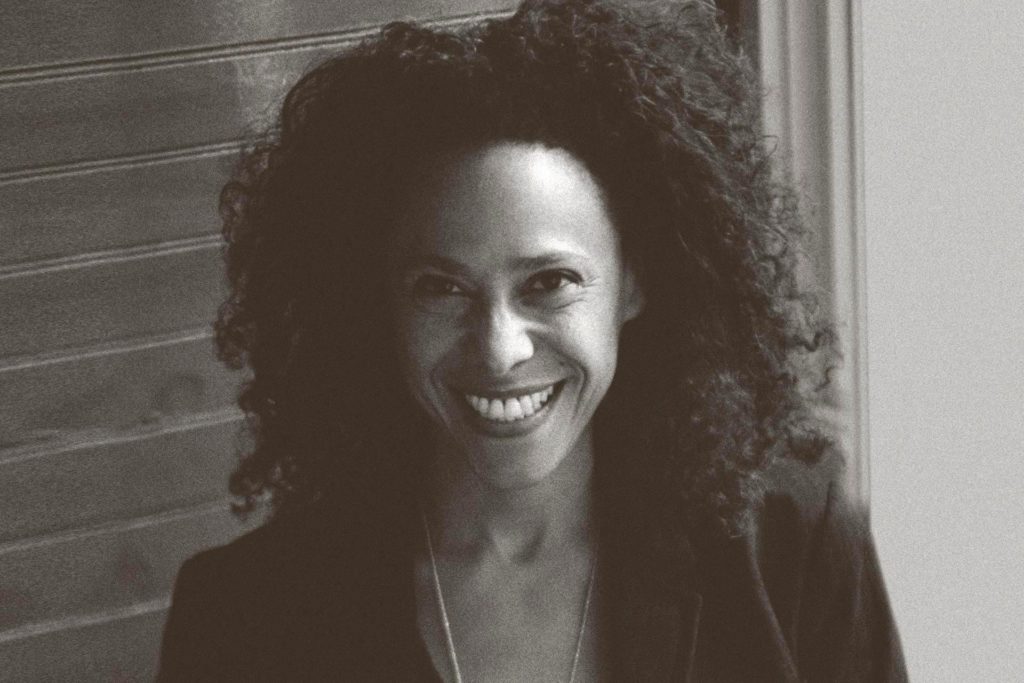
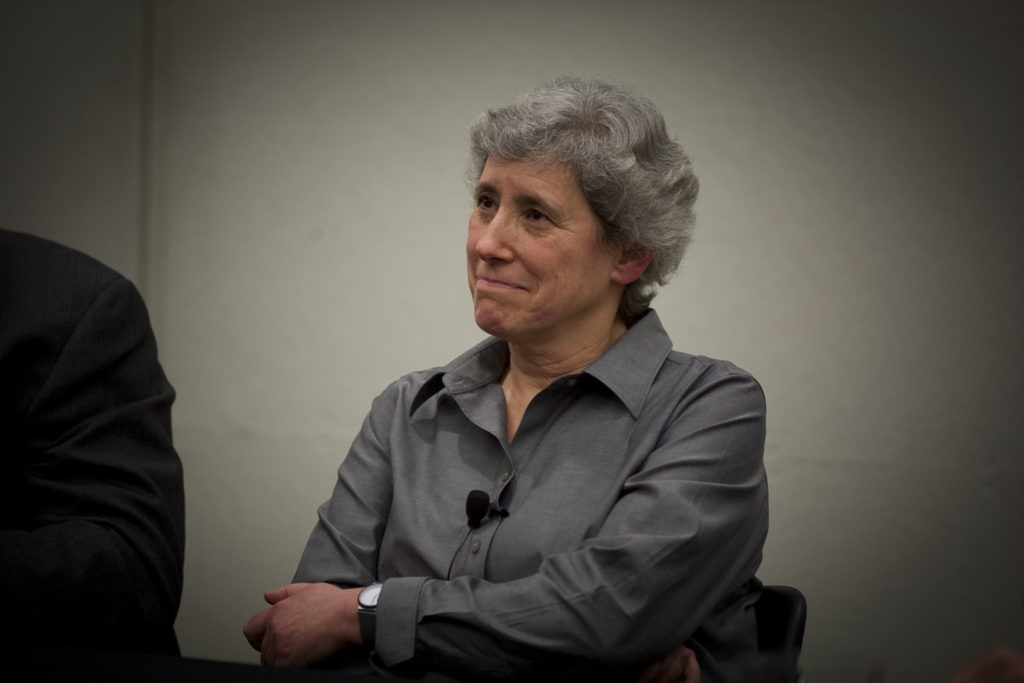
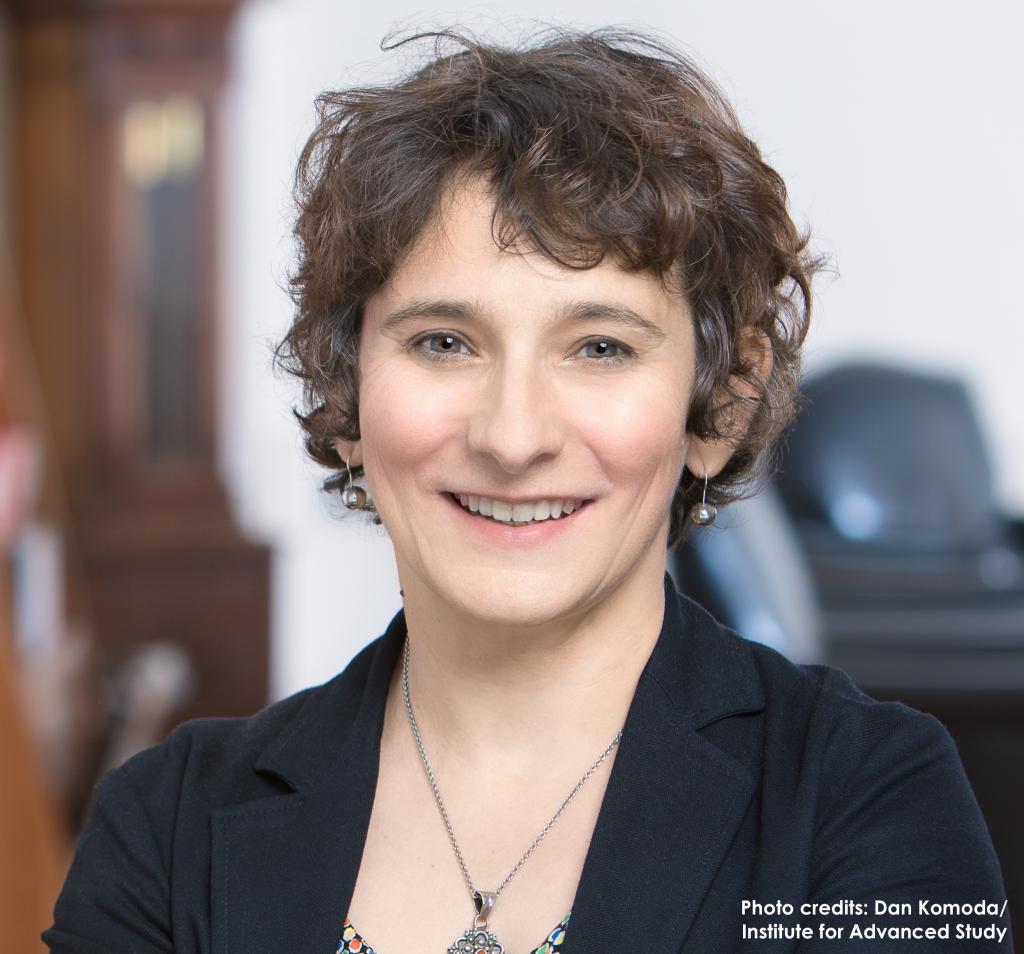
AI’s (un)Stable Diffusions?
Our keynote panel brings together four leading theorist on AI:
- Dr. Beth Coleman is Associate Professor of Data & Cities at the Institute of Communication, Culture, Information and Technology and Faculty of Information, University of Toronto, where she directs the City as Platform lab.
- Dr. Marion Fourcade is Professor of Sociology and Director of Social Science Matrix at UC Berkeley. I am also an associate fellow of the Max Planck-Sciences Po Center on Coping with Instability in Market Societies (Maxpo).
- Dr. Mona Sloane is a sociologist working on design and inequality, specifically in the context of AI design and policy. She is Research Assistant Professor at NYU’s Tandon School of Engineering, Senior Research Scientist at the NYU Center for Responsible AI, and a Fellow with NYU’s Institute for Public Knowledge (IPK) and The GovLab.
- Dr. Lucy Suchman is Professor Emerita of the Anthropology of Science and Technology at Lancaster University in the UK.
Day 2 – Keynote Panel



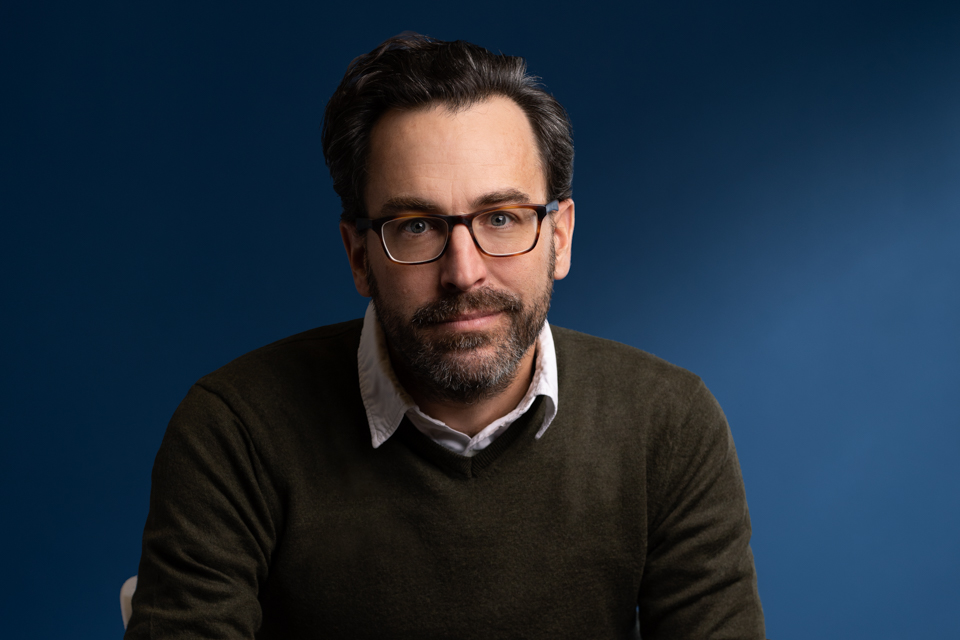
Our second keynote panel brings together four international scholars to discuss the future of the Shaping AI project. Panellists include:
- Christian Katzenbach is a professor of media and communication studies at the University of Bremen and an associated member of the HIIG Berlin. He is a principal investigator of the project and leads the “Shaping AI”-consortium.
- Noortje Marres is Professor in Science, Technology and Society (STS) in the Centre for Interdisciplinary Methodologies, University of Warwick and Principal Investigator on the Shaping AI project. She has been a key contributor to the development of controversy analysis as an interdisciplinary method, including through her ESRC-funded research on Issue Mapping as Participatory Method.
- Donato Ricci is a design researcher. While he has a background in data and information visualisation, he specialises in the use of Inventive and Participatory Design Methods in Human and Social Sciences. He coordinates the French team’s activities.
- Jonathan Roberge is Full Professor at the Institut National de la Recherche Scientifique (INRS) in Montreal, Canada. He funded the Nenic Lab as part of the Canada Research Chair in Digital Culture he has held since 2012.
Ethos
We are only a few organizers with no professional support. Please be mindful of the gendered division of labour. When you arrive at the symposium, ask how you can help. Take initiatives that benefit the community of critical AI researchers we are creating.
Be aware of and reflexive of your own behaviour. Support others to accomplish their full potential, don’t dominate the conversation and don’t interrupt others.
We encourage all to engage with and uplift the scholarship and voices of Black, Indigenous, Global South and other equity deserving groups. AI remains a white EurAmerican male ethnocentric field of research which needs to be enriched and troubled.
During the period of the symposium, we have appointed “Angels” consisting of two individuals who serve as contact persons for the purpose of receiving and addressing confidentiality issues that might arise at the conference. We are committed to feminist, anti-racist and intersectional values in both the content of our research and the way we interact with each other.
Format
Each presenter has 10 minutes time for their presentation. We will enforce time limits to ensure everyone has equal time. You do not need to use all your time. We hope to ensure time for discussion between panellists.
We ask that if you use slides to join the Symposium Zoom and present from your laptop. We will project the Zoom for participants in the room.
Presentations will not be recorded, only synchronous presentations
Moderation guidelines
During the conference, we will use the progressive stack to solicit comments and feedback after each presentation. Moderators will maintain a speakers queue, giving priority to new and marginalized voices.
We are committed to equity, humility, and good relations in our research and among each other.
Wifi
Participants will have access to the Concordia-Guest wifi network. We will share the passcode at the event.
Masking
Procedural masks may be required on Concordia campus depending on the current health recommendations. Speakers may remove their masks while presenting at least 1 metre from others.
Technical difficulties
Should be expected 😉
Location
Our symposium is located at the Milieux Institute on the 11th floor of the EV Building at the Sir George William Campus of Concordia University.
How to get here
We are located at the Guy-Concordia metro station and off the Maisonneuve bike path. Milieux is easily accessible from the elevators closest to the Mackay street entrance. If you are coming from the subway, pass the first set of elevators you encounter, turn left at the security desk walking east toward Mackay Street. Elevators will be on your left.
Food and beverages
We encourage you to make your own lunch and meal arrangements. Here are some suggestions:
- Hinnawi Bros Bagel & Café (Bagel sandwiches | 2002 Mackay | Map)
- Misoya (Ramen | 2065a Bishop | Map)
- DonDonYa (Small, great rice bowls | 1433a Bishop | Map)
- Poulet Rouge (Chicken and rice bowls | 1623 Sainte Catherine | Map)
- Quing Hua (Dumplings | 1675 de Maisonneuve Ouest | Map)
- Boustan (Shawarma | 2020 Crescent | Map)
- Mandy’s (Pricey, tasty salads | 2067 Crescent | Map)
- Mama Bangkok (Thai food | Inside Le Faubourg Sainte Catherine | Map)
- Thali Cuisine Indienne (Indian food/thalis | 1409 Saint Marc | Map)
- MTLKFOOD (Takeout sushi | 1829 Sainte Catherine | Map)
- Nilufar (Inexpensive falafel and vege shawarma | 1923 Sainte Catherine | Map)
We will try to provide coffee and tea. Please bring a water bottle to drink on campus.
Sponsors
(un)Stable Diffusions is supported in part by funding from the Social Sciences and Humanities Research Council.
Participants
Alexander Laffer
Bangor University
Alexander Laffer is a Research Fellow at Bangor University where he is working on AI, Ethics & Policing in North Wales: Establishing Citizens’ Perspectives, his third project with members of the Emotional AI lab. He was also a research fellow at the University of Edinburgh where his use of Design Fiction formed the basis of the Critically Exploring Biometric AI Futures project. He is a teaching fellow at the University of Birmingham. He has published papers in linguistics and digital media, as well as pieces of digital fiction, using creative practice to further explore his research interests.
Alison Powell
London School of Economics and Political Science
Alison Powell is Associate Professor in Media and Communications at the London School of Economics and directed the JUST AI Network: Joining Up Society and Technology for AI (https://just-ai.net). JUST AI creates alternative orientations towards data and AI ethics within a broad community of practice. Alison s empirical research is focused on the ways technology-driven governance influences citizenship, especially in smart cities while research creation practices include data walking (https://www.datawalking.uk) and creative interventions in
Alka Menon
Yale University
Alka V. Menon is an Assistant Professor of Sociology at Yale University. Her research addresses the effects of standardization, globalization, and new technologies on medical practice. She is PI and social science lead on a three-year grant from the U.S. National Science Foundation on how to design accountable software systems. Collaborating with computer scientists, physicians, and engineers, she adopts a science and technology studies framework investigating what constitutes a trustworthy explanation for an AI enabled system. She is the author of Refashioning Race: How Global Cosmetic Surgery Crafts New Beauty Standards.
Angela Misri
Toronto Metropolitan University
Misri is an educator, novelist and journalist who has spent 20 years at The CBC and The Walrus.
Arne Hintz
Cardiff University, UK
Arne Hintz is Reader (Associate Professor) at Cardiff University’s School of Journalism, Media and Culture, Director of its PhD programme, and co-Director of the Data Justice Lab. His research focuses on the practices and conditions of digital citizenship in the context of datafication, combining work on civic participation, digital policy, and data justice. He is Co-Chair of the Global Media Policy Working Group of the International Association for Media and Communication Research (IAMCR). His recent publications include the co-authored “Digital Citizenship in a Datafied Society” (Polity Press, 2019) and “Data Justice” (Sage, 2022).
Blair Attard-Frost
University of Toronto
Blair Attard-Frost is a PhD Candidate at the University of Toronto’s Faculty of Information. Their research investigates the ethics and governance of artificial intelligence, with a particular interest in the ethics and governance of AI value chains, the design and implementation of Canada’s AI governance initiatives, and queer/trans philosophy of AI. Prior to beginning their PhD, Blair worked on policy research, digital transformation, and business development projects in the tech industry, research institutes, and public sector for several years.
Blayne Haggart
Brock University
Blayne Haggart is an associate professor of political science at Brock University in St. Catharines, Ontario. His current research focuses on the political economy of knowledge governance. He is the author of Copyfight: The Global Politics of Digital Copyright Reform (University of Toronto Press, 2014), and co-editor of Power and Authority in Internet Governance: Return of the State? (Routledge, 2021), among other journal articles, publications and opeds. His latest book, co-authored with Natasha Tusikov, is titled The New Knowledge: Information, Data and the Remaking of Global Power, and will be published by Rowman & Littlefield later this summer.
Cheshta Arora
Independent
Cheshta Arora is an independent researcher, writer and ethnographer based out of India studying socio-technical systems in the contemporary. Cheshta holds a PhD from the National Institute of Advanced Studies/Manipal Academy of Higher Education. Currently, she is a Co-PI on an AI auditing project funded by IBM-Tech Ethics Lab, University of Notre Dame.
Chrys Vilvang
Concordia University
Chrys Vilvang is a media artist and PhD candidate at Concordia University. He is interested in the impact of digital technologies on consciousness and is currently exploring archives, algorithms, artificial intelligence, photography, and memory through research-creation. Vilvang examines the production of meaning through images and how these processes are being transformed by tools that intervene, remediate, and alter our relationship with our photographic past.
Cody Rooney
Toronto Metropolitan University
Cody Rooney is a PhD candidate in Communication and Culture at Toronto Metropolitan University. As a writer and multimedia artist, Cody’s research and work in film, photography, and digital culture explores concepts of post-digital visuality, memory, nostalgia, post-structuralism, and critical theory. He is the Founder/Editor-In-Chief of Liminul Magazine (www.liminul.xyz), a digital arts and culture publication based in Toronto.
Dave Karpf
GWU
Dave is an associate professor at George Washington University in the School of Media & Public Affairs. His main field of research is internet politics, but he has devoted the past few years to a study of the “history of the digital future.” That has left him with a lot to say about how the ways that our current AI discourse resembles previous sociotechnical discursive moments.
Debarun Sarkar
Independent
Debarun Sarkar is an independent researcher and writer based in India. He is a PhD candidate at the Department of Sociology, University of Mumbai, and a research associate at Vidyashilp University, Bengaluru. As an independent researcher, he is currently a co-PI on an auditing AI project funded by Notre Dame-IBM Technology Ethics Lab, University of Notre Dame.
Etienne Grenier
Institut national de la recherche scientifique (INRS)
Etienne Grenier is an artist and researcher working in the field of digital cultures. Currently a PhD candidate at the Institut national de la recherche scientifique in Montréal, he studies the impacts of datatification on cultural production and contributes to Project Shaping AI. Maintaining an active creative practice in digital arts, his installations and performances have been presented in leading institutions and major festivals in Europe and the Americas.
Emily Cichocki
Western University
Emily Cichocki is a PhD candidate in philosophy at Western University. Her research is primarily in the areas of social and political philosophy, feminist philosophy, and AI ethics. Her doctoral dissertation focuses on structural injustice and solidarity. Emily is part of an interdisciplinary team dedicated to research at the intersection of AI ethics and social justice. She has also been extensively involved in her local labor union and served as the union’s gender equity chair. Aside from her work, Emily loves playing the drums, dancing, and gardening.
Fabian Ferrari
Utrecht University
Fabian Ferrari is a postdoctoral researcher at Utrecht University. As a member of the focus area Governing the Digital Society, he examines the governance of AI-generated media.
Frederick Maheux
UQAM
Frédérick Maheux is a multimedia artist whose main interests are emergent subcultures of the digital age, eschatological futurology, and speculative realism. Aside from his work in experimental and documentary cinema, he creates noisy video games, produces industrial music under Un Regard Froid, and practices the art of analogic collages. He is currently a doctoral student at UQAM in the communication department, working on underground video game creation and its potential as epistemic objects.
Hamsini Sridharan
University of Southern California
Hamsini Sridharan is a PhD student at USC Annenberg. She historical and contemporary entanglements of digital technologies with environmental imaginaries and speculative futures, asking how such entanglements shape the critique, contestation, and governance of technology.
Huixin(Elsa) Zhong
University of Bath
Huixin (Elsa) Zhong is a Ph.D. candidate at the University of Bath’s Center for Doctoral Training in Accountable, Responsible, and Transparent AI. She has a background in AI, Behavioral Economics, and Law. Her Ph.D. project investigates the social and ethical implications of AI.
Hyo Jung Kim
Department of Media, Culture, and Communication, New York University
Hyo Jung Kim is a media and technology scholar formerly trained in art history who works on Vietnam as a South Korean person while also studying as a first-generation immigrant at a U.S.-based university. From these experiences, Hyo Jung thinks about unjust power dynamics in transnational flows of media and technology, that are used to envision, build, destroy, and rebuild the world.
Jer Thorp
New York University
Jer Thorp is an artist, writer and teacher living in New York City. He is best known for designing the algorithm to place the nearly 3,000 names on the 9/11 Memorial in Manhattan. Jer was the New York Times’ first Data Artist in Residence, is a National Geographic Explorer, and in 2017 and 2018 served as the Innovator in Residence at the Library of Congress. Jer is one of the world’s foremost data artists, and is a leading voice for the ethical use of data.
Jiaqi Wen
The Digital Democracies Institute, Simon Fraser University
Jiaqi Wen is a PhD student and AI researcher affiliated with the Digital Democracies Institute, Simon Fraser University. She investigates the histories of machine intelligence with a focus on alternative and queer ways of encountering AI, e.g., expressive and emotional attachments to data, practices of magic in science, speech impairment and its embodiment in digital technologies.
Johannes Bruder
Critical Media Lab Basel
Jonathan Obar
York University
Dr. Jonathan Obar, PhD is an Associate Professor of Communication and Media Studies at York University. He researches and teaches about information policy, with a focus on relationships between digital technologies, civil liberties, and the inclusiveness of public cultures. Recent academic publications address big data and privacy, corporate transparency, deceptive user-interface designs, and online consent processes. With funding from the Office of the Privacy Commissioner of Canada Dr. Obar launched https://www.biggestlieonline.com, a knowledge mobilization site about meaningful online consent research and advocacy.
Kai-Hsin Hung
HEC Montréal
Kai-Hsin Hung, HEC Montréal. His research interests are on the global data economy and how being at different segments of the global data value chain affect workers and their quality of work. He is a member of the Interuniversity Research Centre on Globalization and Work (CRIMT). Before this, he co-managed the Future of Work at the training arm of the International Labour Organization (ILO).
Karolina Drobotowicz
Aalto University
Karolina Drobotowicz is a doctoral researcher in the CRAI-CIS research group at Aalto University, dept. of Computer Science. She has been conducting research in Human Computer Interaction (HCI), software engineering and ethical AI. Her dissertation focuses on trustworthy AI services in the public sector, therein on transparency, inclusion and civic empowerment in public AI service design.
Kelly Bronson
University of Ottawa
Kelly Bronson is a Canada Research Chair in Science & Society at University of Ottawa in Canada. She is a social scientist studying the societal and ethical implications of controversial technologies—from GMOs to big data and AI. She has intervened into technology governance and regulation and has published her academic work in national (Canadian Journal of Communication) and international journals (Science as Culture, Journal of Responsible Innovation, Big Data and Society). Her new book is on AI in agriculture and is titled, Immaculate Conception of Data: Agribusiness, activists and their shared politics of the future.
Kyle Kubler
McGill University
Kyle Kubler is a faculty lecturer at the McGill Writing Centre at McGill University. He writes about the political economy of the fitness industry, physical culture, and information communication technologies.
Margaret Johnston
Concordia University
Mathew Iantorno
University of Toronto
Mathew Iantorno (he/him) is a doctoral student in the Faculty of Information at the University of Toronto. His research focuses on forms of retail automation, such as kiosks and delivery robots. He examines how these technologies are reconfiguring employment, consumer responsibility, and public space in ways that are often incongruous with their marketing pitches.
Maya Indira Ganesh
LCFI and ICE, University of Cambridge, UK
Maya works as an assistant teaching professor co-directing the MSt in AI Ethics & Society at the University of Cambridge; and as a senior researcher starting on a new project about critical technical practice and pedagogies in interdisciplinary teaching and learning about AI. Her doctoral work was a mapping of the the material-discursive and ‘epistemic infrastructures’ shaping ethics in the case of the driverless car. Maya spent a decade as a feminist researcher working on digital security and freedom of expression in various Souths. She maintains a creative practice about technology and culture through collaborations with artists, writers, and cultural institutions.
Nathalie DiBerardino
Western University
Nathalie DiBerardino is a philosophy student at Western University in London, Ontario. She is particularly interested in exploring the intersection of AI with the concepts of trust, emotion, and harm, especially in healthcare and education.
Nicolas Chartier-Edwards
Institut national de la recherche scientifique (INRS)
Nicolas Chartier-Edwards is a PhD. student at the Institut national de la recherche scientifique (INRS) in Montreal, Canada (custom program in Science, Politics and Technology) and a research assistant with the project Shaping AI, where he examines, through the perspective of Critical AI studies and political economy, the cybernetic transformation of Canadian governance and public administration.
Nicola Bozzi
King’s College London
Nicola Bozzi is a lecturer at the Department of Digital Humanities at King’s College London, as well as a freelance writer contributing to international publications like Frieze, Domus, and Elephant. His main research interests are globalized identities and the role of art in society. You can follow him on Twitter as @schizocities.
Nikhil Dharmaraj
Harvard College
Nikhil Dharmaraj is an emerging academic and aspiring accomplice interested in situating “AI” technologies within contemporary structures of power and violence, drawing from anti-capitalist, queer, abolitionist, and anti-caste perspectives.
Nirit Weiss-Blatt
University of Southern California
Dr. Nirit Weiss-Blatt, Ph.D., is the book author of “The TECHLASH and Tech Crisis Communication.” She is a Former Research Fellow at the University of Southern California, Annenberg School for Communication and Journalism. In her studies, she analyzes the tech discourse. She is a contributor to Techdirt and has also published in The Daily Beast, Newsweek, Tech Policy Press, and Big Think.
Olivia Doggett
University of Toronto
Olivia Doggett is a designer, researcher, and PhD candidate at University of Toronto’s iSchool and School of Environment. Broadly, Olivia is interested in building sustainable and equitable employment pathways and worker-centred technologies for displaced peoples and temporary labour forces. Prior to her PhD, she worked as a design strategist and researcher in financial and non-profit services.
Rosa Wevers
Utrecht University
Rosa Wevers works as a PhD candidate and teacher in Gender Studies at
Utrecht University. In her NWO-funded PhD research, she a
Özgem Elif Acar
Concordia University
Özgem Elif Acar is an MA student in Media Studies at Concordia University Tiohtià:ke/Montreal, Canada. She holds a BA in Psychology, BS in Industrial Engineering, and a minor degree in Media and Visual Arts from Koc University, Turkey. Her research interests include user experience design and research, algorithmic media, platform studies, online authenticity and identity formation in emerging platforms from psychosocial, ethnographic and design perspectives. More specifically, she is interested in exploring various digital and hybrid footprints that collectively reflect social and cultural practices with the aim of redesigning the interaction among human experiences, technology and culture.
Ranjodh Singh Dhaliwal
University of Notre Dame
Ranjodh Singh Dhaliwal is Ruth and Paul Idzik College Chair in Digital Scholarship and Assistant Professor of English and Film, Television, and Theatre at the University of Notre Dame. His research investigates the aesthetic and politico-economic entanglements of our technological cultures. He is the co-author (with Théo Lepage-Richer and Lucy Suchman) of Neural Networks (University of Minnesota Press and Meson Press, forthcoming), and his award-winning writing can be found in Critical Inquiry, Configurations, American Literature, and Design Issues, among other venues.
Rosa Wevers
Utrecht University
Rosa Wevers works as a PhD candidate and teacher in Gender Studies at
Utrecht University. In her NWO-funded PhD research, she analyzes how
contemporary art exhibitions confront visitors with critical perspectives on
surveillance and engage them in strategies of resistance. In 2021, she curated
the exhibition “Face Value: Surveillance” in collaboration with IMPAKT [center for media culture].
Rowan Melling
Simon Fraser University
Rowan Melling is a painter and academic living in Vancouver, unceded Coast Salish Territories. He is currently a Ph.D. candidate at the School of Communication at Simon Fraser University, focusing on how the more megalomaniacal aspects of Romanticism have returned in the Digital Age. His academic writing has been published in Capacious Journal and (forthcoming) in the Journal for Cinema and Media Studies. His first solo art exhibition, Boss Bodies, showed at CSA Space in Vancouver in 2021, and attempted to counter the aesthetics of entrepreneurial triumphalism so celebrated in this mecca of gentrification.
Saba Rebecca Brause
University of Zurich
Saba Rebecca Brause is a doctoral candidate and research assistant at the Department of Communication and Media Research (IKMZ), University of Zurich, Switzerland.
Sophie Ogilvie-Hanson
Concordia University
Sophie Ogilvie-Hanson is a musician and PhD student in the Department of Communication Studies at Concordia University. Sophie is interested in the relationship between art, commerce, and new media technologies. Her research focuses on vernacular understandings of recommendation algorithms within artist communities, and how independent musicians conceptualize their careers in relation to the streaming economy.
Stefanie Duguay
Concordia University
Stefanie Duguay is an Assistant Professor in the Department of Communication Studies at Concordia University in Tiohtià:ke/Montreal. She is a Concordia University Research Chair and Director of the Digital Intimacy, Gender and Sexuality (DIGS) Lab.
Teresa Scassa
University of Ottawa
Dr. Teresa Scassa is the Canada Research Chair in Information Law and Policy at the University of Ottawa. Teresa has served on a number national and provincial advisory panels on law and technology related issues. She has written widely in the area of privacy law, data governance, intellectual property law, law and technology, artificial intelligence, and smart cities. She is a co-editor of the books AI and the Law in Canada (2021), Law and the Sharing Economy (2017), and The Future of Open Data (2022). She is co-author of Digital Commerce in Canada (2020) and Canadian Intellectual Property Law (2022).
Théo Lepage-Richer
University of Toronto
Théo Lepage-Richer is a Postdoctoral Fellow in the Institute of Communication, Culture, Information, and Technology at the University of Toronto, where he works on the environmental history of computing in Canada. Previously, he was a SSHRC/FRQ-SC Fellow at Brown university, where he obtained a PhD in Modern Culture and Media. His recent work appeared in Big Data & Society.
Tim Murray-Browne
Imperial College London
Tim Murray-Browne is a computational artist, engineer and researcher unearthing parts of human wildness marginalised by technology. As resident artist at Machine Agencies at Concordia University, he’s exploring real-time human-AI interaction rooted in human movement and embodied thinking. Tim holds a PhD in Interactive Music Systems from Queen Mary University of London and a bachelors+masters in Maths and Computer Science from Oxford University. His work was awarded the Sonic Arts Prize and nominated for Ars Electronica’s STARTS Prize. It’s shown at Tate Modern (London) and Leonardo da Vinci Museum of Science and Technology (Milan). @timmurraybrowne timmb.com
Valentine Goddard
AI Impact Alliance
Lawyer, certified mediator, and inter-arts curator, Valentine Goddard is a member of the AI Advisory Council of Canada, and a United Nations expert on AI policy and governance. In 2017, she founded and is the executive director of AI Impact Alliance, an organisation whose mission is to facilitate a responsible governance of AI and steer its use towards the achievement of the United Nations 17 Sustainable Development Goals. It is recognized by the Conseil des arts de Montréal as a digital arts research organisation. She designs and leads transdisciplinary programs that bridge civic engagement and knowledge mobilisation to policy and regulatory innovation. The Art Impact AI programs led to the adoption of international policies that highlight the role of the arts and civil society in AI and digital governance. She is regularly invited to take part in the analysis of emerging AI and data laws and discuss the impact of generative AI. She co-chairs the Gender Equality and the Environment in Digital Economies international expert group whose policy recommendations address critical issues for the Women, Peace and Security Agenda and sustainable natural resource data governance. In 2023, she was awarded the Mozilla Creative Media award for “Algorithmic (or not) Art to Counter Gender, Cultural and Racial Bias in AI”.
Wayne Homes & Caroline Pelletier
IoE UCL
Wayne Homes and Caroline Pelletier are academics at UCL’s Institute of Education, in the department of Culture, Communication and Media. They both teach on the MA Education and Technology. Wayne brings a critical studies perspective to the connections between AI and education, and their ethical, human and social justice implications. His recent publications include “The Ethics of AI in Education: Practices, Challenges and Debates” (2022). Caroline researches discourses of technology, and transformations in work practices through technology, especially simulations and games. She has written extensively about technology and education.
Xiaosu Li
Simon Fraser University
Xiaosu Li holds an MA in Communication from Simon Fraser University. Her ongoing doctorate research focuses on the historical aesthetic and digital visuality of brain imaging technology, exploring the material possibilities, and the entanglements and dynamics in scientific knowledge production from historical and ethnographical lenses.
